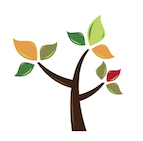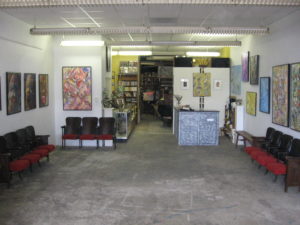Some people follow the news the way others follow National Football League, or Baseball. Individuals who watch cable news networks consume more news than those who watch local news networks.1 As of 2023 television is taking a back seat in news consumption from digital platforms such as smart phones and tablets; 32% of Americans often get news from television while 56% from digital devices, 16% for radio and 9% for print .2
Constant exposure to news, or what I like to think of as persistently reported negative events, tends to raise stress levels. If it goes too far, this can even exacerbate or create mental health challenges. In the article, “Media overload is hurting our mental health” Charlotte Huff reports on many of the ways media is creating increased stress or leading to mental health challenges3. This article includes new language that popped up during the COVID-19 pandemic to include, “doom scrolling,” “headline anxiety,” and “headline stress disorder“. Fortunately, there are solutions. Three notable solutions from the article include turning off notifications, limiting social media exposure to fifteen minutes at a time, and adding tech free times to one’s day.
In my own estimation, being a news consumer does not make you a better citizen. It may increase your stress levels, add mental health challenges, and decrease your efficacy in everyday life, whether that is playing with your children, engaging with friends or family, or being productive at work.
Of course there are counter arguments.
Argument: Being informed helps a person know who they should vote for. Response: Consuming endless news won’t impact your voting decisions. Spending an hour to learn about a candidate should be enough to know which person best represents you. Most people know who they are voting for before they vote.
Argument: National politics are important. Response: National politics are important but if your not doing something beyond voting like: campaigning, protesting, writing letters, amplifying social media posts which draw attention to issues, then you are not affecting national politics. Reading the news does not impact the world, it only impacts you.
Consuming news often gives the feeling of being informed and contributing to society. News is more often the articulation of a point of view surrounding a set of events, rather than the establishment of what has occurred.
Cable news which focuses on single news stories in a twenty-four-hour period are often focused on sensational events which are meant to emotionally charge, making it seem like these are the most central issues in our lives. This is to shift societal perspectives on issues like: guns, abortion, or gender.
While these are important issues which should be discussed, the cable news does not create a sense of discourse which informs, deepens understanding, or improves the quality of our lives. In general, by focusing on these issues which affect a limited number of the population it can detract from other serious issues.
Instead of consuming the news it may be more helpful to think about issues you care deeply about. Get involved in these issues locally and try to affect change where you live. Read books and articles which deepen your understanding of the issue. By understanding an issue deeply, you will be able to think of ways you can act in your communities or personal life to affect change.
Sustainability is about building a life which is healthy and rewarding. Building a healthy and rewarding life can be difficult and the distractions are many. Consuming the news will not necessarily improve your life, it may worsen it. Sustainability is about building strong communities which enrich and support the lives within it. Sustainability is about protecting the weakest among us, so they too can live enriching lives. Ultimately, consuming too much news is not a sustainable activity and has no influence on you or your community in a positive way. Instead, utilize the news to be informed and act but don’t rely on it to change the world around you.

